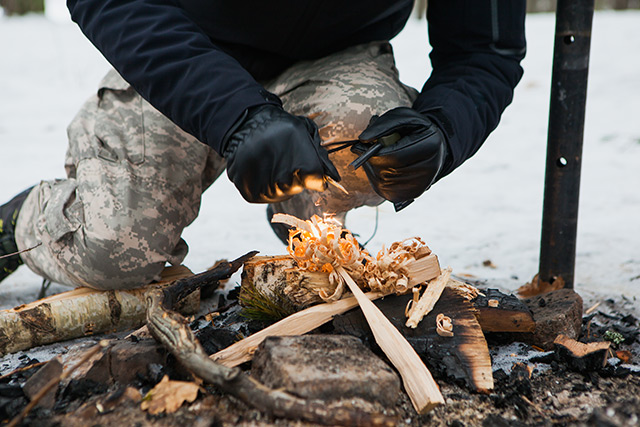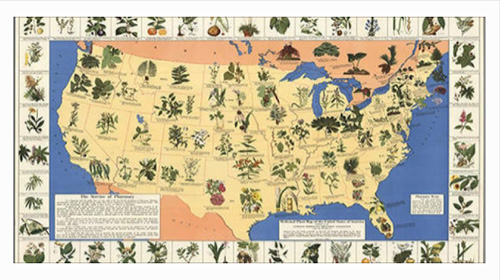Do you know how to tell if your canned food has gone bad? Look for these signs
10/08/2018 / By Zoey Sky

When it comes to food supplies, preppers know that it’s important to learn about proper food storage. If you can’t tell when canned food has gone bad, someone could get very sick. This can be fatal, especially if someone eats the contents of a spoiled can of food after SHTF and emergency services aren’t as accessible to the public.
You can prevent this by learning the signs of spoiled canned food, especially since there are various ways that harmful bacteria can contaminate canned food. (h/t to PreppersSurvive.com.)
8 Signs that canned food has gone bad
While botulism spores are odorless and invisible to the naked eye, there are other contaminants that can be seen and smelled in canned food. Most signs that indicate spoilage in canned food is easy to recognize, as long as you know what you’re looking for.
- An acrid smell – If food from an opened can smells acidic, chemical-laden, or pungent, don’t risk eating the food. Throw away anything that has an unnatural smell.
- A bulging lid that moves up and down – Canned food exposed to extremely cold or hot temperatures will eventually develop a bulging lid. If you have a can of food like this, press the top of the can. If the lid moves up and down, the food is no longer safe to eat.
- The can is corroded/rusty – Canned food stored in a room with moisture may corrode, and this can spoil the food inside the can. In time, corrosion will form holes that can let in air and bacteria.
- Dents – Small or big dents may compromise the integrity of the air-tight seal in canned food. This can expose the food to harmful bacteria.
- Food explodes from an opened can – When canned food isn’t processed and sterilized properly, food will go bad as the bacteria grow inside the can. The food will then explode when the can is opened.
- Leaks – Canned food will start to leak if the can itself is damaged due to moisture or exposure to bacteria.
- Rising bubbles or unnatural looking colors – Observe a can of food after it has been opened. If small bubbles rise to the top of the liquid inside, the food may be unsafe to eat. Never eat anything that has turned an unnatural color. (Related: An essential guide to canning: What you need and how to get started.)
- Sound – A spoiled can of food will either hiss loudly when opened or you won’t hear any sound when you shake the can. When you open canned food, you can usually hear a soft, quiet hiss. This is just air rushing into a can.
In short, food in a can that smells strange, is bulging, is rusted, dented, explodes, leaks, has bubbles/strange colors, or makes strange sounds may be unsafe to eat. Do not taste food that you believe is contaminated, and dispose of the spoiled food properly to avoid health hazards.
What is botulism?
Botulism, also referred to as botulism poisoning, is a rare but very severe illness that can be transmitted via food, contact with contaminated soil, or through an open wound. Without immediate medical attention, botulism may cause breathing difficulties, paralysis, and death.
There are three main types of botulism:
- Infant botulism
- Food-borne botulism
- Wound botulism
The symptoms of botulism may appear from six hours to 10 days after the initial infection. On average, the symptoms of infant and food-borne botulism can appear from anywhere between 12 to 36 hours after contaminated food is consumed.
The early signs of infant botulism include:
- Constipation
- Difficulty feeding
- Drooling
- Drooping eyelids
- Irritability
- Loss of head control and floppy movements due to muscle weakness
- Paralysis
- Tiredness
- Weak cry
The signs of food-borne or wound botulism include:
- Abdominal cramps, nausea, and vomiting (this only applies to cases of food-borne botulism)
paralysis - Blurred vision
- Breathing difficulty
- Difficulty swallowing or speaking
- Drooping eyelids
- Facial weakness on both sides of the face
Botulism poisoning is caused by the toxin produced by Clostridium botulinum, a type of bacteria. C. botulinum is very common, but it only exists in conditions where there is no oxygen. Some food sources, like home-canned foods, are a potential breeding ground for this kind of bacteria.
According to the Centers for Disease Control and Prevention (CDC), about 145 cases of botulism are reported yearly in the U.S. At least three to five percent of individuals with botulism poisoning die.
Learn more about proper food storage, such as how to tell if canned food has gone bad, at FoodSupply.news.
Sources include:
Tagged Under: botulism, botulism poisoning, canned food, canning food, clostridium botulinum, Food Preservation, food safety, Food storage, food supply, off grid, preparedness, prepper, prepping, preserving food, self sufficiency, self-reliance, self-sustainability, survival, survival food, sustainable living, urban prepping



















